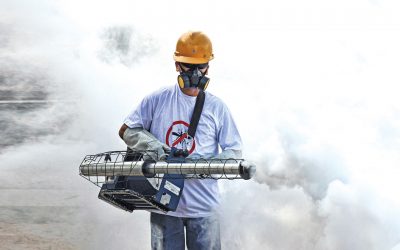When I heard that John Humphrys was speaking at Rotary International in Great Britain and Ireland’s Conference in Bournemouth I knew I had to try and speak with him for the magazine.
Getting interviews with people like John is difficult enough since some can take months to get agreed and even then arranging a date and time can be even more challenging. With John Humphrys, going through his charity network, it turned out to be very easy and John and I had made arrangements to talk after his Radio 4 Today programme.
I thought I was going to have a daunting time talking to one of the most celebrated interviewers on the airwaves but John Humphrys was charm itself and it turned out to be one of the easiest interviews I have done. John did not want to be briefed on the questions and was ready for almost anything I felt I needed to ask him about.
We were meeting to talk about the charity he set up called The Kitchen Table Charities Trust. I had to ask the obvious question – How it was created and what did it do? John told me: “The background is that my mother died a few years ago and my father had died a few years before that.
He left us kids his house and we each got about £1,000 and I wanted to do something with it. My father had been blind as a young man and I had this fancy idea of setting up a school or even a couple of schools for orphan children in Sub-Saharan Africa, where I had worked for many years.
“I travelled to Tanzania to see how feasible it was as I didn’t want to stick his money into a charity that would spend half on bureaucracy and other things. I discovered after 48 hours that it was a daft idea.”
“However, whilst I was there I looked at lots of small charities and came to the extraordinary conclusion, hardly surprising, that there are an awful lot of charities that do a wonderful job but have a problem raising money because they don’t have a profile.”
“They are effectively kitchen table charities, they don’t have offices and they don’t have paid staff so it’s all voluntary and they work very hard to raise money. I wrote a piece about that for the Daily Mail and as a result I got many many letters and quite a few had money in them, and I realised I had to do something with it since I couldn’t send it all back, so I set up The Kitchen Table Charities Trust.”
John obviously wants to make it loose and flexible and is quite blasé about the set up, and he is insistent that administration costs are kept to a minimum, he does have trustees who work with him but I got the impression that he runs the show.
Liverpool Charities and Voluntary Service (LCVS) handle all the money donated to The Kitchen Table Charities Trust. John explained: “We have no paid staff, LCVS handles all the money for us and if a trustee travels to visit a project they do so at their own expense. LCVS tells me that our total costs are less than one penny in the pound.” I thought this was very impressive and would be music to the ears of many Rotarians.
Now it’s not very often that you have one of the country’s leading interrogators in front of you and I wanted to make the most of my time with John so we moved on to talk about the selection of charities they support and the types of projects they help to fund.
John outlined the first they donated to: “It was a little charity for street children in Arusha, Tanzania and it is very effective. They look after huge numbers of kids whose parents have died and as there is no one to look after them, these 12 and 13 year olds go off to the city and end up stealing, getting arrested, begging, they just die or they go into prostitution.
I found a little chap who was helping these kids so I supported them in the first year and then the second year, and the third year I did not hear from them. I emailed them and asked what was going on and the woman who runs it said: ‘we are doing all right now. However, I know of another charity about 50 miles away who could do with some help’ and that’s how it works.”
John went on to discuss possible corruption but told me that on the whole the money gets to the right people. He did have one hiccup but it was sorted in the end: “We get many more requests for help than we can handle and we check them carefully, but it is inevitable that some small sums will go astray. As part of the deal we ask for pictures of toilet blocks for example. We get a lot of requests for building those by the way, and we check the pictures to see where the money was spent,” explained John.
I pointed out to John that Rotarians would be pleased to hear that the organisation is proud of its ability to ensure that every penny donated gets to the proper beneficiary.
John was aware of that and quickly commended the work of Rotary.
In researching his charity’s work I had noticed that all the grants they made were small amounts, usually for international projects, and below £10,000, often partnering with other organisations, so I discussed this with John. His reply was interesting: “We will partner with other organisations if they have the same ethos as us, meet our criteria and follow the same routes.” John explained their due diligence and with two former ambassadors in Africa on his board of trustees they know the countries and customs very well.
Through John’s role on the Today programmes he hears harrowing stories of deprivation and poverty in this country, but most of his charity’s work is abroad. He commented: “We make it absolutely clear we work in Africa. Yes of course you hear some miserable things in the UK but I don’t know of any child in this country who is starving to death. In any case the work we do in Africa is enough. I want to do things that are simple and direct.”
As I always do I asked what Rotary can do to help and John suggested that if Rotarians are out in the field and find a requirement and it fits with the Kitchen Table Charities Trust’s criteria then they should get in touch with as much information as possible. I asked about revenue and John was very forthcoming in telling me that last year they raised around £3 million and the obvious comeback to that is, was it because of him and who he is? He does accept that but as he is quite modest he played it down.
When talking about his time with the BBC, and of course the Today programme, John was not so forthcoming since he is so modest.
However, he did tell me what irks him most on the programme is the politician who comes along and sticks to his or her own agenda and answers questions that they want to address. As John says: “I’m asking the questions that my listeners want the answers to and I try to get them to reply.”
He did say that one of the most difficult people to interview was Margaret Thatcher.
I went on to mention that he does try to bring out the best in people and his reply was what makes him one of the best: “Who wants to listen to a boring interview? So you want people to do the best they can, but if you get people like politicians who merely want to deliver the message and says he is answering the question when clearly he is not, then you adopt a slightly different approach.”
His career with the BBC has spanned quite a few decades, so it’s a wonder he fits it all in. His reply was the classic answer of anyone so driven as he is: “It’s because I enjoy it and when I stop enjoying it then it is time to think about how I fill my time.”
It was fascinating talking with him and I have no doubt his time on stage at Rotary’s Conference in Bournemouth will be really very interesting. We parted with an agreement to try and meet up there.


























































